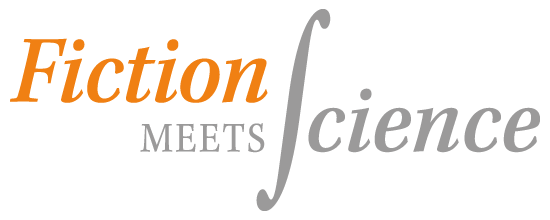| Author |
E.L., Doctorow |
| Year |
2014 |
| First published |
2014 |
| Number of pages |
224 |
| Edition |
First US hardback |
| ISBN |
9781400068814 |
| Keywords |
neuroscience, scientist main character, mad, mentally ill scientist, cognitive science, psychology (experimental), FMS Library Book |
Abstract
E. L. Doctorow’s latest novel is a lyrical, funny, and profound contemplation on how
the brain constructs reality. And about the fallacies of
being a brain. Formally,
it is a dialogue between Andrew, who sometimes refers to himself in the third person,
and some obscure “Doc.” Like any decent psychiatrist¬--and we have every reason to
suspect that he or she is one--Doc asks many questions but never reveals or explains
anything. Are we in a clinic or a private practice? Or is this all just happening
inside Andrew’s head? At one point, Andrew takes a vacation on a Norwegian fjord,
so it’s clear that he’s not held in custody. But then again, he might just be making
it all up.
“We’re all pretenders, Doctor, even you. Especially you. Why are you smiling? Pretending
is the brains’s work. It’s what it does. The brain can even pretend not to be itself.”
(p. 103)
Andrew may be a pretender, but he is not a show-off. His problem is he seems to attract
calamity. As a boy he was walking his beloved dachshund on Washington Square when
suddenly a hawk came down, grabbed the dog, lifting it up into the air, and killed
it. Years later, after he married Martha and had a child with her, he accidentally
administered the wrong medication and the baby died. His marriage broke up. Later,
as a college cognitive science teacher, Andrew fell for the bright student Briony,
who was then killed in the 9/11 attacks. Left alone with their baby, Willa, Andrew
goes back to his first wife Martha, and this is where the novel starts. But Martha
runs off with Willa as compensation for her lost child, leaving Andrew with her new
husband, an opera singer.
Sound a bit exaggerated? Perhaps. But as we know, life can be stranger than fiction.
Especially with the brains we have. This is where the science comes in: Andrew, the
unreliable narrator, is reflecting on his relation to his own neural self. And he
has made up his mind: “We have to be wary of our brains,” he says. “They make our
decisions before we make them. They lead us to still waters. The renounceth free will.
(...) But don’t think about these things, because it won’t be you anyway doing the
thinking. Just follow your star. Live in the presumptions of the socially constructed
life. Abhor science. Sort of believe in God. Put your failings behind you. Present
your self-justifications to the bathroom mirror.” (p. 177)
Andrew’s life takes yet another odd twist when an old roommate from his student days
at Yale makes a brilliant career––and is elected president of the United States. Andrew
tells his Doc how this old friend appointed him “Director of the White House Office
of Neurological Research”. But after a few weeks, Andrew quits the job because he
can’t stand the humbug on war and chemical weapons he has to hear from the president’s
advisors, “Rumbum” and “Chaingang.” It all ends with Andrew madly doing a hand-stand
in the Oval Office (“I was the first who ever did that!”), and being led away by security
officers.
So what do we make of that? Difficult to say. Let me pretend I know: Andrew is a dislocated
mind. He doesn’t know his place, and he’s worried. The trouble is, as a cognitive
scientist he knows too much about the workings of the brain. If we took what brain
research tells us personally, we couldn’t help but develop dissociate personalities.
For we cannot
be our brains and see what they’re doing at the same time.
If we tried, as Andrew does, we’d be in trouble.
--FMS (Steve Ayan)
